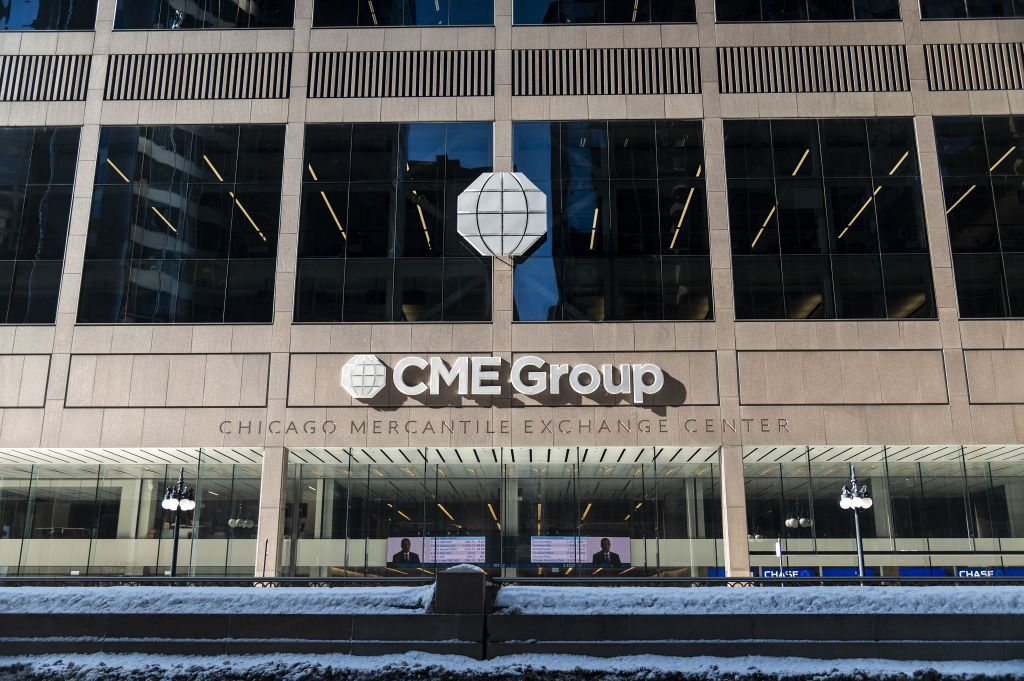JD Wetherspoon: why investors should head to the pub
Pub group JD Wetherspoon is a solid operator, and is due a bounce when the pandemic eases. Matthew Partridge picks the best way to play it.


Get the latest financial news, insights and expert analysis from our award-winning MoneyWeek team, to help you understand what really matters when it comes to your finances.
You are now subscribed
Your newsletter sign-up was successful
Want to add more newsletters?

Twice daily
MoneyWeek
Get the latest financial news, insights and expert analysis from our award-winning MoneyWeek team, to help you understand what really matters when it comes to your finances.

Four times a week
Look After My Bills
Sign up to our free money-saving newsletter, filled with the latest news and expert advice to help you find the best tips and deals for managing your bills. Start saving today!
It has been a dismal two years for pubs and restaurants. They were closed for long periods in 2020 and early 2021, and when they did reopen they faced various restrictions that were only gradually phased out. Then in the summer the “pingdemic” caused staff shortages before supply-chain difficulties dampened autumn trading.
To add insult to injury, the emergence of the new Omicron variant has led to calls for more restrictions, including masks in restaurants and possibly even closures and lockdowns, to be reintroduced.
Shareholders in pub chain JD Wetherspoon (LSE: JDW) have experienced a particularly bumpy ride. After doubling between March 2016 and March 2020, the share price plunged by 60% during the first wave of the crisis.
MoneyWeek
Subscribe to MoneyWeek today and get your first six magazine issues absolutely FREE

Sign up to Money Morning
Don't miss the latest investment and personal finances news, market analysis, plus money-saving tips with our free twice-daily newsletter
Don't miss the latest investment and personal finances news, market analysis, plus money-saving tips with our free twice-daily newsletter
It then staged a partial rebound as restrictions were lifted only to fall again during the autumn of 2020. The news of the vaccine sparked a second rally, propelling the stock back to levels near its pre-crisis high this spring. However, since then the shares have slipped by a third.
A sea of troubles
Wetherspoon, like its competitors, has been hit by a range of problems, including the slow pace at which older customers are returning to the pub and the impact of the homeworking revolution on sales of lunches.
Medium-term shifts in the labour market and rising food prices may also mean that margins will come under pressure. Still, all the indications are that people are starting to become more confident about returning to work and going out in general.
While there have been many false dawns over the past two years, what we know so far suggests that even in the worst-case scenario, the Omicron variant is more likely to delay, rather than derail, a complete return to normality, especially since new Covid-19 pills, which are set to become widely available early next year, are likely to slash hospitalisation and death rates.
In the longer run, Wetherspoon has several advantages. These include a strong brand name and a loyal following among its many fans. Its focus on beer and good-quality, affordable food underpinned sales growth of around 6%-7% a year between 2016 and 2019, while the company earned a solid 10% return on capital invested (a key gauge of profitability).
Even in the most conservative scenario, sales are expected to return to their pre-pandemic level by 2023, although profits may take a little longer to bounce back. Overall, this justifies the stock’s 2022 price/earnings (p/e) ratio of 15.
At the moment, the market is clearly moving against Wetherspoons, as shown by the fact that it is trading well below its 50-day and 200-day moving averages. I’d therefore wait until it has gone up by 10% from its current price of 857p to 945p before pulling the trigger. Once that happens, I’d go long at £2 per 1p, with a stop loss of 450p, which would give you a total downside of £990.
Get the latest financial news, insights and expert analysis from our award-winning MoneyWeek team, to help you understand what really matters when it comes to your finances.

-
 Should you buy an active ETF?
Should you buy an active ETF?ETFs are often mischaracterised as passive products, but they can be a convenient way to add active management to your portfolio
-
 Power up your pension before 5 April – easy ways to save before the tax year end
Power up your pension before 5 April – easy ways to save before the tax year endWith the end of the tax year looming, pension savers currently have a window to review and maximise what’s going into their retirement funds – we look at how
-
 Should you sell your Affirm stock?
Should you sell your Affirm stock?Affirm, a buy-now-pay-later lender, is vulnerable to a downturn. Investors are losing their enthusiasm, says Matthew Partridge
-
 Profit from pest control with Rentokil Initial
Profit from pest control with Rentokil InitialRentokil Initial is set for global expansion and offers strong sales growth
-
 In the money: how my trading tips fared in 2025
In the money: how my trading tips fared in 2025The success of the open positions offset losses on closed ones, says Matthew Partridge
-
 Coreweave is on borrowed time
Coreweave is on borrowed timeAI infrastructure firm Coreweave is heading for trouble and is absurdly pricey, says Matthew Partridge
-
 Circle sets a new gold standard for cryptocurrencies
Circle sets a new gold standard for cryptocurrenciesCryptocurrencies have existed in a kind of financial Wild West. No longer – they are entering the mainstream, and US-listed Circle is ideally placed to benefit
-
 Profit from other investors’ trades with CME Group
Profit from other investors’ trades with CME GroupCME Group is one of the world’s largest exchanges, which gives it a significant competitive advantage
-
 Investors need to get ready for an age of uncertainty and upheaval
Investors need to get ready for an age of uncertainty and upheavalTectonic geopolitical and economic shifts are underway. Investors need to consider a range of tools when positioning portfolios to accommodate these changes
-
 How much gold does China have – and how to cash in
How much gold does China have – and how to cash inChina's gold reserves are vastly understated, says Dominic Frisby. So hold gold, overbought or not